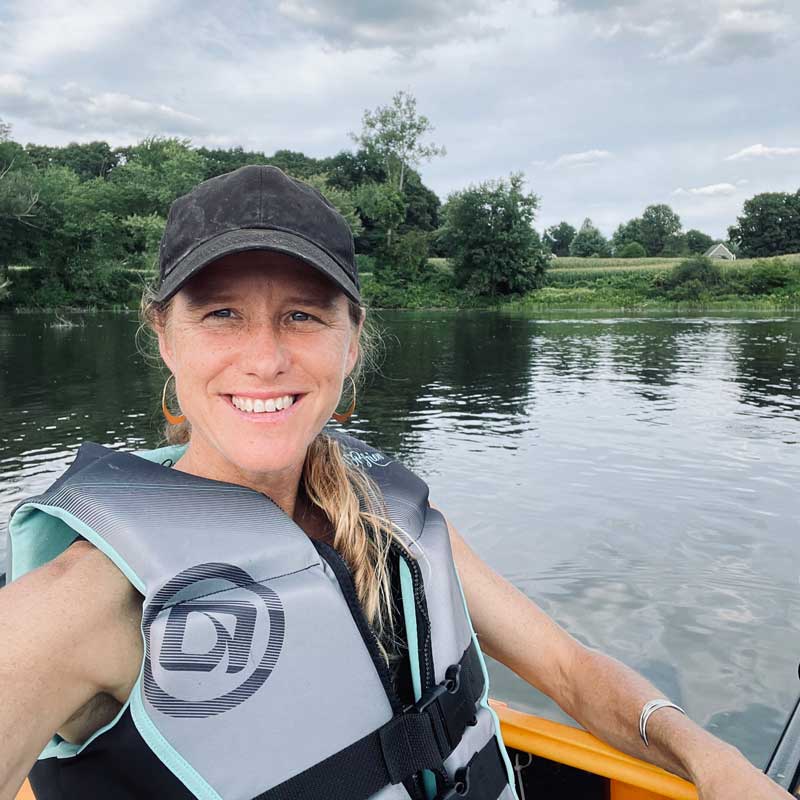- Landscape Architect
- Rhode Island School of Design
- Email: evogler@risd.edu
Biography
Emily Vogler is a landscape architect whose research, design and teaching investigate social-ecological systems surrounding water infrastructure, sense of place and climate uncertainty. She has ongoing research projects looking at the irrigation ditches in New Mexico, aging dam infrastructure in New England and coastal adaptation strategies in Narragansett Bay. In her research and design practice, Vogler investigates methods to address regional environmental and cultural issues at the site and material scale; novel approaches to engaging the public in the design and decision-making process; and strategies for strengthening the collaboration and communication between designers, artists and scientists. Vogler served as Landscape Architecture department head at RISD from 2017–19. Prior to teaching at RISD, she was a senior project manager at Michael Van Valkenburgh Associates and the 2010 National Olmsted Scholar.
Area of Interest
As we enter into the 21st century, there is the pressing need to address the impacts of climate change while also redefining our contemporary relationship to water as a commons. We need to question who should have access, control and decision-making power over these shared resources and the surrounding landscapes. In the coming decades, thousands of miles of coastline around the world will need to be redesigned in response to climate change. I am interested in how local communities can be directly engaged in this process to envision and construct more resilient coastal futures that build greater equity and justice. I believe that landscape architects will play a critical role in this work and in my teaching aim educate the next generation of landscape architects to take on these leadership roles.
As a landscape architect and environmental planner, my teaching, research and practice explores ways to address regional environmental and cultural issues at the site and material scale; novel approaches to engaging the public in the design and decision-making process; and strategies for strengthening the collaboration and communication between designers, artists, scientists and the public. Some of my ongoing projects related to coastal issues include:
Future of Dams / Dam Atlas - I was part of the NSF Future of Dams grant looking at aging dam infrastructure in New England. As part of this grant, I was specifically researching methods to engage communities in decision making around their local dam. Growing out of this research, I have continued to collaborate with Art Gold to develop the Narragansett Bay Dam Atlas, an online platform that includes information to help the public understand the complex social-ecological dynamics of dams, case studies, decision support tools, and an interactive map of all the dams in the Narragansett Bay Watershed.
Shell-ter - In collaboration with Marta Gomez-Chiarri and Scheri Fultineer, I worked on Shell-ter, a project to develop modular breakwater structures that can be constructed by communities and installed in the intertidal zone to reduce erosion and provide habitat for mollusks. Since that project, I have taught multiple other courses looking at the construction of modular structures to build coastal resilience.
Helping develop the RISD / URI Coastal Sustainability Dual Degree Program - As Department Chair of the Landscape Architecture program at RISD from 2017-2019, I worked to help advance the RISD/URI Coastal Sustainability Dual degree program. In addition, during my time as Department Chair, I reworked many aspects of our curriculum to have a stronger focus on coastal issues.
Contemporary coastal issues exist at the intersection of social and ecological systems. Increasingly it is recognized that to address these issues holistically requires interdisciplinary approaches. I strongly believe in the need for interdisciplinary collaboration and believe that landscape architects can play a critical role as members of interdisciplinary teams. As a discipline that understands landscapes as interconnected socio-ecological systems, works from the regional to the detail scale, deals with the spatial and temporal conditions of the public realm, and is skilled at communicating complex scientific information to the public, I believe that landscape architects are uniquely positioned to help address coastal issues. In addition, right now, to deal with the accelerated pace of change in our environment, there is a desperate need to think beyond what is known, into the unknown to imagine other worlds are possible. Designers have the skills to research, synthesis, envision and communicate about these alternative futures.

